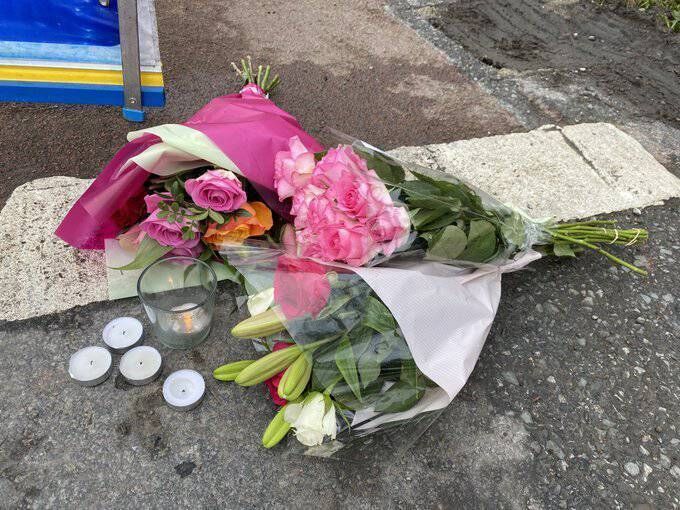Louise O'Neill: Ashling Murphy should have been safe. She should have made it home

'Photos of Ashling have been shared online, beautiful in a red dress and lipstick, almost impossibly young.'
I was a teenager when Larry Murphy was arrested for the brutal rape and attempted murder of a woman in 2000, and I don’t remember being conscious of the story at the time. But recently I read a contemporaneous article about the case, and I haven’t been able to stop thinking about it since.
“At about 8.15pm on Friday, February 11th, last year…” the article began. “A Carlow woman left work in the town and walked to the nearby car-park where she had left her car. Larry Murphy was waiting. He had spotted her earlier in the town and began stalking her, waiting for an opportunity to attack.”
Is that what it means, to be a woman? To always feel vulnerable, no matter where you are? You could be going about your day – rushing to work, grabbing a takeaway coffee, fumbling in your handbag for your keys as you walk into a car park – and there’s someone in the shadows, watching you, waiting. It’s the stuff of nightmares, and it’s almost child-like, as if you’re asking your mother to check under the bed for the bogeyman.
But every time we hear a story about yet another woman trying to go about her day in peace – walking to the pub to meet a friend, going for a run after work – yet another woman who never comes home again, it’s as if it has happened to us too. We say their names aloud. Sarah Everard. Sabina Nessa. Ashling Murphy. And we wonder which one of us will be next.

When Sarah Everard was murdered, we counted the ways in which she had been careful, like all women are taught to be. She stayed on the phone with her boyfriend, she wore comfortable shoes in case she needed to run. And yet still, there were those who tried to hold her responsible – women “need to be streetwise”, a police commissioner tut-tutted in a subsequent radio interview.
Maybe get a taxi rather than walk alone? Maybe carry a rape alarm in case the taxi driver attacks you? Maybe take self-defence classes, too? Maybe never leave the house again? What other ways can we devise to ensure that woman carry the burden of male violence on their backs?
At 4pm on Wednesday, Ashling Murphy, a twenty-three-year-old primary school teacher, went for a run by the canal bank in Tullamore. She was attacked and killed in broad daylight. Photos of Ashling have been shared online, beautiful in a red dress and lipstick, almost impossibly young.
Josepha Madigan, the Minister for Special Education and Inclusion, spoke on Pat Kenny’s radio show today, saying we need to consider options like panic buttons and special apps for women’s safety. I understand this reaction – my first instinct was to text a friend who runs alone every morning to warn her, hating myself for doing so – but it’s like putting a band-aid on an open wound.
Imagine the uproar if we attempted to curtail men’s movements – a curfew, perhaps, or apps that insist men check in at a certain time – and now, think of all the ways that women limit their lives to stay safe, and how normalised those behaviours have become. A key between the fingers, ready to lash out. Taking the longer route home because there are CCTV cameras, a trail of breadcrumbs in case you disappear into the dark. Feeling unable to walk in the streets of our towns and cities, while taking photos of the registration plate when you climb into a taxi. The ‘I’m home’ texts sent to friends, by which we mean, I’m safe. I’m alive.

There will be plenty of “thoughts and prayers” offered over the next few weeks, speeches given, countless words written in columns such as this one. But what will change? What measures will be taken to ensure that no other family will experience the kind of anguish the Murphys are currently enduring? Will extra funding be allocated to domestic violence charities? Will more shelters be built for abused women and their children? Will judges hand down heavier sentencing for those convicted of assaulting women? Will there be mandatory rehabilitation programmes within our prisons to discourage those men from re-offending upon release? What about finally introducing a comprehensive sex education programme for children of all ages, one which tackles gendered violence against women?
The truth is, it’s easier to view what happened to Sarah Everard and Sabina Nessa and Ashling Murphy as isolated acts of barbarity rather than the inevitable result of a society that accepts violence against women as par for the course. But what if, instead of spending so much time teaching our girls to be careful, we taught our boys to be gentle?
What if, when we told boys to be brave it wasn’t an excuse to deny their tears, but instead encouraged them to stand up for what is right? To say, “that’s not okay” in the face of catcalling and banter and Whatsapp chats seeping with misogyny, because such things are the foundations upon which tragedies like this are built.
Tell me. How many girls could we save? How many girls would make it home?



